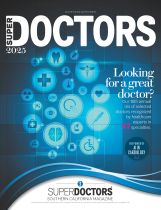American Heart Association (AHA)
October 1, 2014
Do you know where to go for help after you've had a stroke, been diagnosed with heart disease or learn your baby was born with a congenital heart defect? For years, doctors and nurses have turned to the American Heart Association/American Stroke Association for treatment guidelines to help you in your physical recovery. Now, the association is also a place to turn for help with your emotional recovery.
The Support Network offers an online community, as well as materials for starting face-to-face community-based support groups. The goal is to connect people living with heart disease and stroke with others who are going through similar journeys.
Research shows the stress of dealing with an illness can impact health. A study just released in the Journal of the American Heart Association found that a general lack of social support is associated with poor health and quality of life and depression in young men and women a year after having a heart attack.
The person who's had a heart attack or stroke isn't the only one impacted by these life-changing events. The stress of caring for a disabled spouse can significantly raise the caregiver's risk of future stroke, especially among African-American men, according to a study in the journal, Stroke.
"We've always used research to guide our clinical recommendations for treating patients; with more science showing a need for social and emotional support, it's a logical step to add this to our resources to help people live healthier," said Barry J. Jacobs, Psy.D., an AHA/ASA volunteer and Director of Behavioral Sciences at the Crozer-Keystone Family Medicine Residency Program in Springfield, Pa. "Who can offer better perspective on what lies ahead after a heart disease or stroke diagnosis than someone who's been there?"
The monitored online community offers people a place to ask questions, share concerns or fears, provide helpful tips, and find encouragement and inspiration.
Teams in three cities - Nashville, Phoenix and St. Louis - are piloting more extensive activities within the support platform. They'll work with local partners to promote the online community and establish face-to-face community-based support groups. They'll also identify and work with local volunteers who can serve in a variety of leadership roles in the community and online networks.
"The first place I called after learning about Cain's heart was the American Heart Association. At the time, I had no idea where to turn and I was looking to get connected with another family that was in our situation," said Catherine Clinkscales, the mother of a son with a congenital heart defect and a volunteer leader in the Nashville support network pilot. "I have been blown away with the website and the connections it offers. I had two people reach out to me just this week asking if they could give my number to moms who just found out their unborn child would be born with a single ventricle. So many people are going to benefit from the Support Network."
"Support from friends, family and others can help you deal with your feelings of depression, isolation and being overwhelmed," Jacobs said. "The Support Network offers a place for people to find and share emotional support from others going through similar journeys. Sharing stories, experiences and practical advice can make a positive impact in how we face these challenges."

